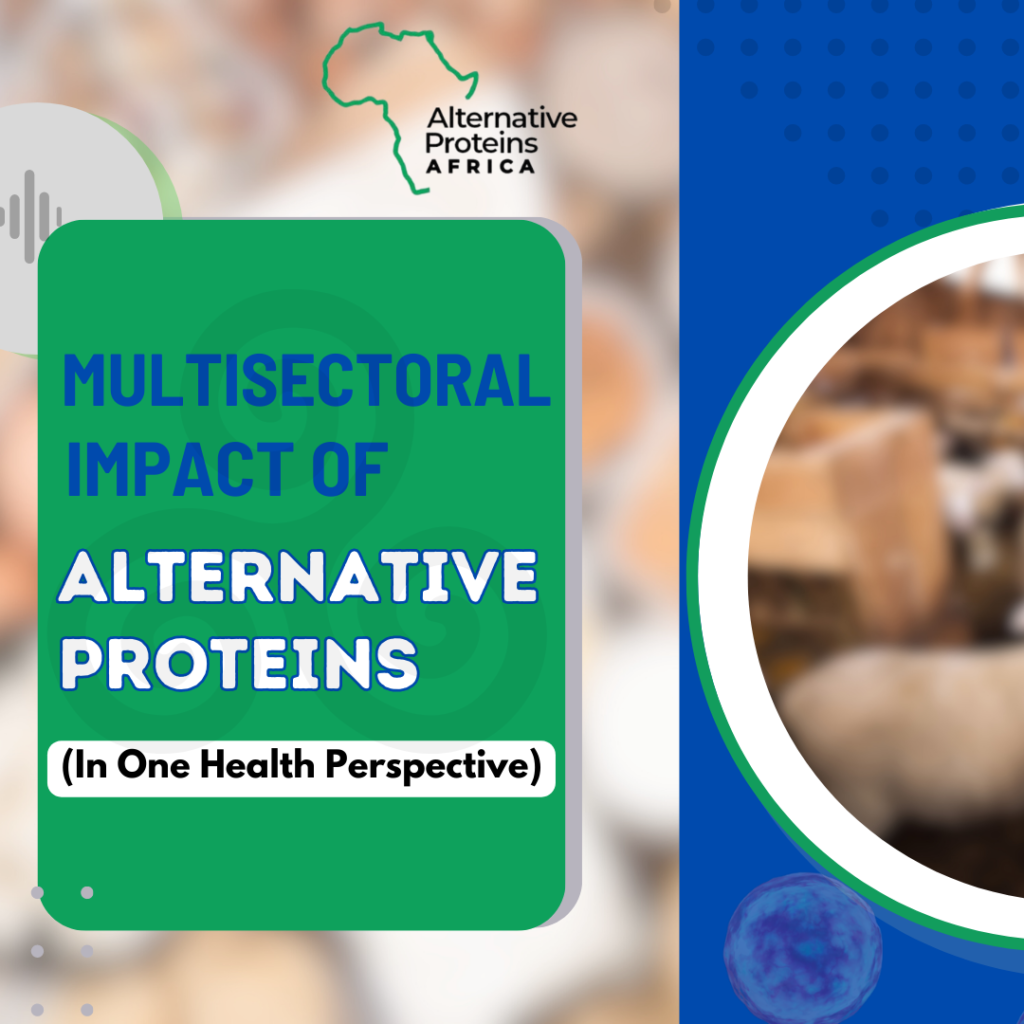
Explore with us the significance of Alternative proteins. But before we do so, why should we talk about Alternative proteins in One Health? Adopting a One Health approach is crucial in examining the impact of traditional protein production – which in recent times has been negative, thereby reinforcing the benefits of the non-animal-based alternatives.
What exactly is One Health?
One Health is a multisectoral approach that recognises the interrelatedness between the health of humans, animals, plants, and the environment in which they exist. By implication, the approach identifies that no single entity of the environment exists in isolation from the others. Invariably, healthy animals, healthy humans, and a safer environment are the focal points of the One Health approach.
What connections then exist between Alternative Proteins and the One Health Approach?
Alternative protein sources have substantial implications on human, animal, and environmental health and welfare. The importance of the One Health perspective in understanding the effects of alternative proteins is in its capacity to holistically assess the complex interaction between the health of these three entities through a multisectoral view. It enables a thorough examination of the environmental, sustainability, health, and food security-related effects of alternative proteins. This approach will allow more informed decisions that advance the health and welfare of humans, animals, and the shared environment.
In recent years, alternative protein sources have gained attention for their potential health benefits, particularly in lowering the risk of chronic diseases. High consumption of traditional animal-based protein sources, such as red and processed meats, have been linked to an increased risk of obesity, some cancers like colon cancer, and cardiovascular diseases. However, the promotion of better health outcomes has shown promise with alternative protein sources. As more people seek sustainable and healthy protein options, alternative proteins present a viable solution. Plant-based protein sources, such as legumes, nuts, and whole grains, are rich in minerals, fibre, vitamins, and phytochemicals which have been identified to contain nutritional and health benefits.
Alternative proteins’ effect in preventing antimicrobial resistance (AMR) is another crucial consideration of its potential in the context of public health and sustainable food production systems. Conventional animal agriculture greatly depends on the constant use of antibiotics to prevent disease and promote growth in livestock. This practice contributes to the development and spread of antibiotic-resistant bacteria. As of 2020, it was reported that about two-thirds of global antimicrobial use was recorded in livestock. This signifies the high contribution of protein production from animals to the worldwide threat of AMR. Using non-animal-based products reduces the risk of exposure to antimicrobials from animals, thus reducing the tendency of AMR. Also, alternative protein sources reduce, and in some cases eliminate, the need for antibiotics in food production, thus reducing the danger of AMR.
The One Health perspective also enables us to assess the possible effects of alternative proteins on animal welfare and health, as well as the possibility of transmission of zoonotic infections, and some inhumane animal treatment. With reduced exposure to animals from farming and the consumption of animal-based products, the chances of zoonoses developing and spreading are likewise reduced.
Furthermore, traditional animal rearing frequently involves cruel treatment, intense confinement, and overpopulation. Alternative protein sources provide chances to eliminate the need to raise animals for slaughter, thereby reducing the exploitation of animals for food. Also, practices such as caging animals for the sake of meat production, amongst other unethical acts, will be eliminated.
The ethical concerns surrounding animal welfare often overlap with some environmental considerations. Traditional methods of raising livestock for meat production increase greenhouse gas emissions, water pollution, and deforestation, amongst other environmental implications. Alternative protein sources, particularly those derived from plants, have a negligible environmental impact and require fewer resources. Therefore, alternative proteins and their choice promote more environmentally friendly food systems.
In summary, the One Health approach assesses the environmental, human, and animal health impact of alternative protein production methods. The conventional meat (protein) production methods have negative human and animal health implications, and have adversely affected the use of land and other environmental resources like water. There are indications that achieving better One Health outcomes is possible with the consumption of alternative proteins. The production of alternative proteins – more so plant-based – assimilates with popular ecosystem restoration approaches. Such production checks on the emission of greenhouse gases characterized by intensive farming of some animals like ruminants, increases on plant varieties used, and affords people the opportunity to evade some lifestyle diseases like diabetes and cardiovascular diseases. This forward-thinking approach enables long-term improvement in environmental health, animal health and human health.

